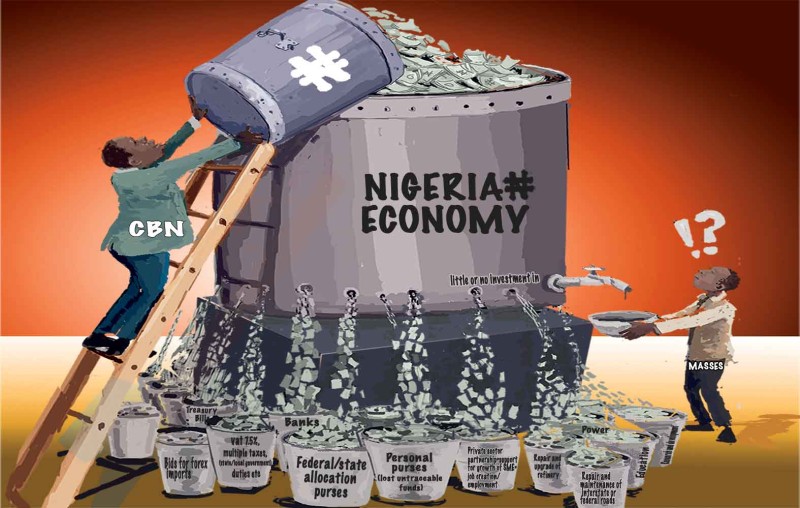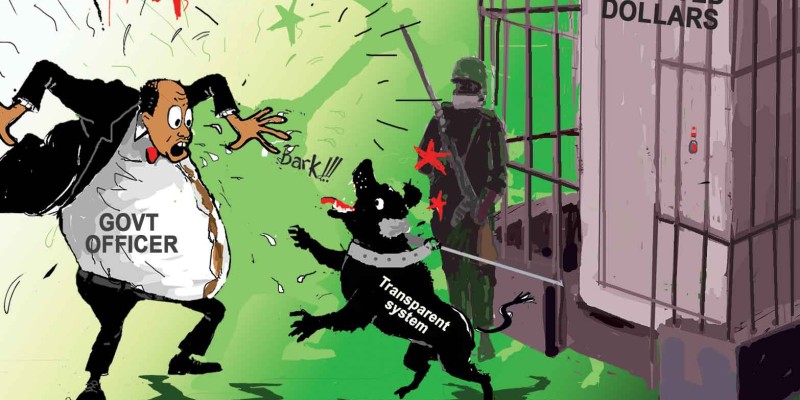Font size:
Print
$ ALLOCATIONS: HOW FOREX MARKET SHOULD OPERATE
By: Late Sir Henry Olujimi Boyo (Les Leba), first published in January 2008
INTRO:
The “Rational Perspectives” column pioneered by the late Sir Henry Olujimi Boyo-November, 2019- presents today’s article titled“$ Allocations: How Forex Market Should Operate”, initially published in January 2008. This article continues the topic of last week’s republication titled “The Dividends of a Liberalised Foreign Exchange Market”. The importance of these articles continues to remain evident, due to the depreciating value of the naira relative to the dollar, despite decades of Sir Henry’s recommendations and enlightening of the Nigerian populace in regards to the root issues behind our slow progress or lack thereof.
(The below article is also available on his online platform, betternaijanow.com for easy reference).
Following CBN’s approval of payment of Dollar allocations to constitutional beneficiaries, the modus operandi suggested in Section 3.6-7 of our paper titled: "A LIBERALIZED FOREIGN EXCHANGE MARKET: a proposal for a liberalized foreign exchange market in Nigeria and its economic benefits" by Boyo/Ojomaikre, is reproduced for the benefit of those readers without internet access. The full paper can be accessed at www.betternaijanow.com.
3.6 How the Market Will Operate
The CBN will consolidate the distributable portion of the dollar earnings monthly (or at worst bimonthly) in arrears. The realizable values will be published in appropriate government bulletins monthly.
3.6.1 The CBN would issue warrants denominated in dollars monthly without fail to each beneficiary of federally derived dollar revenue according to constitutional provisions with regard to sharing of such revenue.
3.6.2 The beneficiary of the dollar warrant (strictly not cash) (federal, state, local governments, statutory agencies etc)will approach their separate bankers with their dollar warrants for conversion of all or part of the dollar warrant into naira for its corporate budgetary obligations which cannot be paid in dollars (since the dollar is not legal tender in Nigeria).
3.6.3 All buying and selling of currencies will be carried out through a bank or any other such denominated financial institution. The local bank officer on receipt of the request would seek current rate confirmation from its head office before concluding a deal.
3.6.4 The local branch of each bank would be required to display the daily exchange rates of major currencies against the naira in their branch after the receipt of the certified daily/hourly advice from the forex department at the head office of his bank.
3.6.5 The CBN’s ruling rate on any particular day will be determined by the weighted average of various negotiated prices on the preceding day. A true naira rate would emerge from the aggregates of rates adopted in all such exchange transactions in the federation. Negotiated naira buying and selling prices of dollar from the numerous outlets or sources would stabilize within a narrow band and produce an effective market determined naira exchange rate made up of the composite or weighted average of various prices.
3.6.6 The rate that would emerge would be dependent on the CBN’s management of the naira supplyin the economy through the various traditional instruments which had remained ineffective and counterproductive in the past – viz:
- Minimum Rediscount Rate
- Commercial Bank Liquidity Ratio
- Treasury Bill Issue
- Asset Ratios etc, etc, etc.
3.6.7 This system will create a scenario where too much dollars ‘appear’ to be chasing too few naira as the CBN guides the value of the naira towards a level that would be consistent with dignified expectation through appropriate regulations and fine tuning of traditional Central Bank instruments worldwide – without jeopardizing liquidity and the adoption of other drastic measures (such as high MRR etc) which are retrogressive to the economy to tame sham excess liquidity! A realistic and stable exchange rate would drastically check inflation and encourage industrial capacity utilization and expansion.
3.7 Payment for Imports and Forex Auctions
All foreign exchange revenue derived from the federation will continue to be domiciled with the CBN.
3.7.1 Each financial institution involved in forex business, particularly the commercial banks and all beneficiaries of statutory allocation will maintain a domiciliary account with the CBN.
3.7.2 Purchase of forex will be for payment of goods and services approved as per the current CBN import guidelines.
3.7.3 Importers/industrialists would approach their (buyers) bankers and submit their request for purchase of forex at the prevailing/negotiated exchange rate. With the full naira cover in their account, a letter of credit will be opened on their behalf with the overseas correspondent bank of the local bank. The usual CBN’s Forms ‘A’ and ‘M’ will of course be completed for monitoring and statistical purposes.
3.7.3.1Details of each transaction will be filed with the CBN so that the domiciliary account of each bank with the CBN will be updated and further instruction on disbursement effected when received.
3.7.4 Private sector importers with dollar denominated domiciliary accounts (for example exporters) will complete necessary import documentation at their banks. Copies of the documents will be forwarded to the CBN for statistical consolidation. Their dollar accounts with their banks will be debited with the import value. Records of daily balances and movements in the domiciliary accounts in the private sector will be filed with the CBN.
3.7.5 Public sector importers with balances on their dollar warrants will similarly complete necessary import documentation at their banks (for goods and services that are in conformity with CBN import guidelines). Receipt of completed forms by CBN will serve as instruction for their domiciliary accounts with the CBN to be debited to the import value.
3.7.6 All exporters with dollar denominated accounts would not be required to sell their dollars on receipt only to repurchase the same dollars through the exchange market for their import requirements.
3.7.7 In addition to destination inspection, prime import documents such as Bill of Lading, Packing List and Original Invoices must be attested by the customs authority from the country of shipment or origin as the case may be before shipment to Nigeria.
3.7.8 There would no longer be a formal elaborate central bidding system under any guise whatsoever for the determination of the naira rate of exchange.
3.7.9 Banks will only earn a commission or a spread between buying and selling rates and all transactions must be properly documented and returns provided to the CBN daily.
3.7.10 The permissible arbitrage payable to banks for buying and selling of foreign exchange should not exceed what obtains in capital market internationally. This figure will be specified by the CBN.
3.7.11 The central bank will retain an audit team in banks and other financial institutions to collect data on all transactions of interest to CBN operations to ensure commercial practices are in line with Central Bank regulations and expectations.
3.7.12 The CBN audit officers will send daily audit returns to the appropriate CBN dept. responsible for monitoring and evaluating forex transactions as well as other such specific information required by the CBN.
3.7.13 The presence of the above resident audit officers is without prejudice to the existence of other CBN investigative and monitoring teams dedicated to ensure compliance in the money market.
3.7.14 The portions of the public sector dollar warrants which have not been sold to the banks in any month would remain as reserve or savings in their domiciliary account with the CBN and the beneficiary can convert such into naira at any time at the prevailing rate of exchange at his local bank after the usual offer and acceptance process, and completion of the appropriate import documentations.
3.7.15 If and when it promotes desired economic objectives or targets, the CBN can draw on the foreign reserves by selling part of its earned dollars to meet any unsatisfied demand for foreign exchange at the exchange rate set by the market.
3.7.16 Commercial banks as well as selected bureau de change will be co-opted to buy and sell travelers cheques.
3.7.17 Denomination of payments for all government tariffs and fees should be strictly in naira.
SAVE THE NAIRA, SAVE NIGERIANS!









